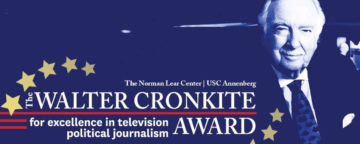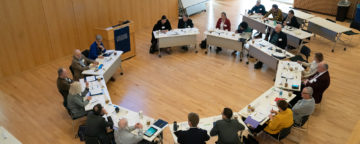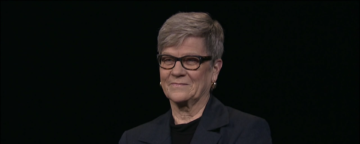The NSF awarded $3 million to station KQED to study the engagement of millennials with science news. The project is connected with several APPC-affiliated scholars.


The NSF awarded $3 million to station KQED to study the engagement of millennials with science news. The project is connected with several APPC-affiliated scholars.

KUSA 9News won the 2019 Brooks Jackson Prize for Fact-Checking Political Messages, one of the Walter Cronkite Awards announced by USC's Norman Lear Center and APPC.

A new policy review of research on teen risk-taking finds that despite stereotypes to the contrary, the evidence does not support the notion of the out-of-control teenage brain.

The Transatlantic High Level Working Group on Content Moderation Online and Freedom of Expression held its inaugural meeting at Ditchley Park, the historic U.K. estate.

Concerned over the state of political discourse, scholars who teach public speaking and composition met at APPC to consider how to restore respect for rhetorical norms.

Freedom of speech must be protected even as governments and industries seek to reduce hate speech and disinformation, the Transatlantic High-Level Working Group on Content Moderation and Freedom of Expression (TWG) said following the group’s initial meeting.

The new Transatlantic Working Group aims to address harmful content online -- hate speech, violent extremism, and viral deception -- while protecting freedom of speech and preserving a vibrant global internet.

Annenberg Public Policy Center director Kathleen Hall Jamieson appeared on PBS show 'The Open Mind' to discuss hacking, internet trolls and the 2016 election.

Kathleen Hall Jamieson’s book “Cyberwar: How Russian Hackers and Trolls Helped Elect a President,” published by Oxford University Press, won the R.R. Hawkins Award from the Association of American Publishers.

In a pilot study, APPC researchers found that the American TV show "Jane the Virgin" features more risk behavior and less healthy behavior than the Spanish-language telenovela it was adapted from, "Juana la Virgen."